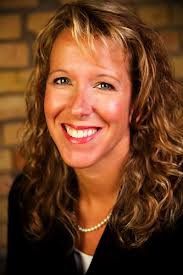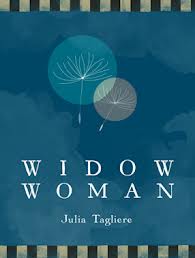This is a guest post by Julia Tagliere who writes for Justscribbling.com.
Months of anticipation. Terrible mood swings. Bladder discomfort, weight gain, hours of intense labor pains, all leading up to the arrival of…A baby? Who’s talking about babies? I’m talking about your book!
It’s true, finishing a manuscript feels almost like giving birth (only you can have an epidural for babies—they don’t give those to writers). Like any other proud parent, you know with absolute certainty that your magnum opus is flawless, which makes exposing your work to others for critique a very humbling business, indeed.
But for all authors, and particularly for those planning to self-publish, obtaining thoughtful, honest, and effective reviews from skilled readers prior to querying or publication is absolutely essential.
But who can provide that kind of review for you? And more importantly, who should? The truth is, good, honest reviews can come from many places, so it might be simpler to discuss reviewers you should avoid (at least at this stage of infancy):
Warm & Fuzzies
This well-intentioned but loving group includes parents, siblings, BFFs and spouses. These people love you! Of course, they’re going to tell you your book is wonderful, just like they will tell you that your baby is the most beautiful child they’ve ever seen. While this group is fantastic at making you feel good about your book, they may not be able to critique your book openly and honestly for fear of hurting your feelings—they’re just too nice.
Show it to them, bask in the glow they provide, but do not rely upon them to give you the detailed, candid feedback you require; they’re biased. Agents, publishers, and readers-at-large do not care if Nana loved your book.
Sour Grapes
We’ve all met them: frustrated, defeated malcontents who resent the fact that you’re moving ahead faster than they are. This group, unlike the WFs, can be harder to recognize—until they publicly trash your book or slam you in front of the rest of your writing group. If you haven’t met one yet, count yourself lucky, but know that, sadly, they are not an urban myth.
Reciprocal Readers
This group is somewhat of a wild card. You’ve agreed to read each other’s manuscripts, and that’s often a good thing, because having another writer review your work can be exceptionally helpful. But what if you are in dramatically different places in your development as writers?
It can be very awkward to receive a glowing review from a colleague but find that your own review is less than positive; the reverse feels even worse. What if you finish your read-through in a month, and they dawdle along for three months? If you do decide to exchange manuscripts with someone, have a frank conversation up front about your mutual expectations.
Are you only asking for proofreading, or are you seeking more substantive feedback? Give each other a list of specific things on which to focus—physical descriptions, character development, continuity, etc.
Now—just because I’ve singled out these groups doesn’t mean that you shouldn’t let them read your manuscript at all. On the contrary, the more eyes that see your work before you query, submit, or self-publish the better, so by all means, share your manuscript, as often as you can.
Even the Sour Grapes have things to teach you about publishing—even if it’s only that you may need to thicken your hide. Just keep in mind that the goal of showing your work at this stage is to identify its weaknesses and figure out how to fix them, a task for which your BFF, Sour Grapes, or Reciprocal Reader may not be qualified.
And one final word of advice: these are only your beta readers. Before you query, submit, or self-publish, hire the best professional editor you can afford. It doesn’t matter how good a writer you think you are. Everyone needs an editor. Ask author friends for referrals. Check references. Request sample edits from prospective editors.
And most importantly, be prepared to work—just like babies, no manuscript is born to perfection. We can only strive to achieve it.
 Julia Tagliere is a freelance writer
Julia Tagliere is a freelance writer
and editor and studied in the M.F.A.
in Creative Writing program at
DePaul University in Illinois. Her work
has appeared in The Writer and Hay &
Grower magazines and she is a
featured author at Buzzle.com and
active blogger at Justscribbling.com.
Her debut novel, Widow Woman, is available
for Kindle at Amazon.com.


Thanks for this post at just the moment I need it